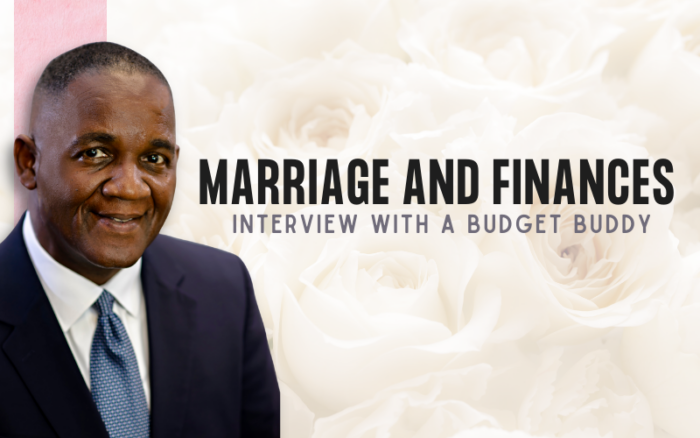Blog | Marriage and Finances – An Interview with a Budget Buddy
Hello, my name is Clarence Nash. You might recognize me from my various roles within Resource One since 2002. Additionally, I have been a Certified Financial Counselor and Credit Union Development Educator since 2018.
These influences and experiences are the foundation of my belief that every individual has the potential to find value in themselves and others through applied learning and discipline, both socially and economically.
Being married since 1986, I have had a lot of experience dealing with marriage and finances. Today, I will be sharing what I have learned over the years that has made sharing my finances with another person successful. However, if you are interested in more information or a personalized evaluation of your specific situation, you can reach out to me or any of our other qualified Budget Buddies. This service is free to our members to help them get on the right financial foot.
Starting Out
The consensus among marriage counselors suggests that money and money fights are the number 1 cause of divorce. To that end, change is inevitable and necessary. It can positively or negatively impact your finances, contingent upon circumstances. The idea of two people being joined as one to navigate life’s journey has some significant advantages to achieving wealth. Usually, it’s done more expeditiously than going at it alone.
Keeping Accounts
Having a joint account is optional, but there are mutual benefits to that. A joint account ensures that both parties can access your funds at any time. If only one person is on the account and that person becomes ill or incapacitated, their partner may be unable to access funds to pay bills and other expenses. Albeit easier to maintain your finances through a joint account, you could have individual accounts and a joint household account to which each person contributes equally, avoiding arguments and conflicts.
Combining your money or keeping everything separate begs the question, how much trust we really have in each other. Is it about who makes the most? Is it about who spends the most? Money infidelity is as destructive as any other type, and we usually learn that the hard way. But on the other hand, a trusting but verified attitude validates faithfulness and strengthens the bonds of mutual achievement.
Being on the Same Page
Honesty about money is essential for trust in a marriage. To be on the same page, despite the different ways you have previously handled your finances, provides a link to successfully managing your growth and achieving your personal and financial goals. Getting on the same page is a matter of having that crucial conversation, committing to budgeting, compromising on the things you value, and carrying out the game plan accordingly.
Spending
People spend money on what they value. The case can easily be made to support the other person’s spending, even if you think it’s unnecessary. Spending is about the rewards and returns that satiate our appetite. You have to approach such discussions with sensitivity and sincerity to avoid alienating your spouse or partner. Communicate with respect and create viable options that are mutually beneficial. Everyone likes a “win-win situation.”
Questions to Ask Before Marriage
There are tons of things you will need to and should ask before marrying someone. Being equally yoked is not just an expression. It means sharing beliefs and values that enhance the probability of a fruitful life’s journey. There are fundamental questions like religion, politics, goals, dreams, to have children or not, blended families, and the list goes on. Perhaps one of the most significant questions that usually gets put on the back burner is our financial health. The amount of income, the amount of debt, credit scores, and capacity are very important to your stability and potential. The lifestyle you live or aspire to is dependent on your financial health.
Credit
If your future spouse has bad credit, it may not affect your credit score when you get married, but it will more than likely diminish your purchasing power or at least make it more expensive to borrow money for big-ticket items like houses and cars. If that scenario exists, consider it temporary and request credit counseling from your local credit union. Most credit unions have Certified Financial Counselors that can give you great advice on building your credit scores. Resource One offers Budget Buddies, a free financial coach for their members.
Budgeting and Paying Bills
The budgeting and bill paying should be a mutual consideration and agreement. Relationships are significantly enhanced when both parties find value in participating in the process. It creates a level of accountability to each other through each other. That balance contributes to a healthier and wealthier lifestyle, creating checks and balances that mitigate conflict and confusion.
The central theme in Marriage and Finance is communication. In fact, most couples that have been married and successfully so will argue that communication is the lifeblood of a marriage, not necessarily money. Budgeting is the distribution of resources to meet your current needs based on your cash flow adequately. The key is to save more than you spend, even if it initially means sacrificing your wants and living within your means. Accordingly, investigating your savings options through your employer or other investment vehicles (too many to name) is the journey of a thousand miles beginning with one step.






